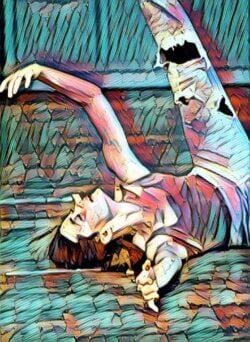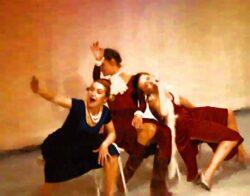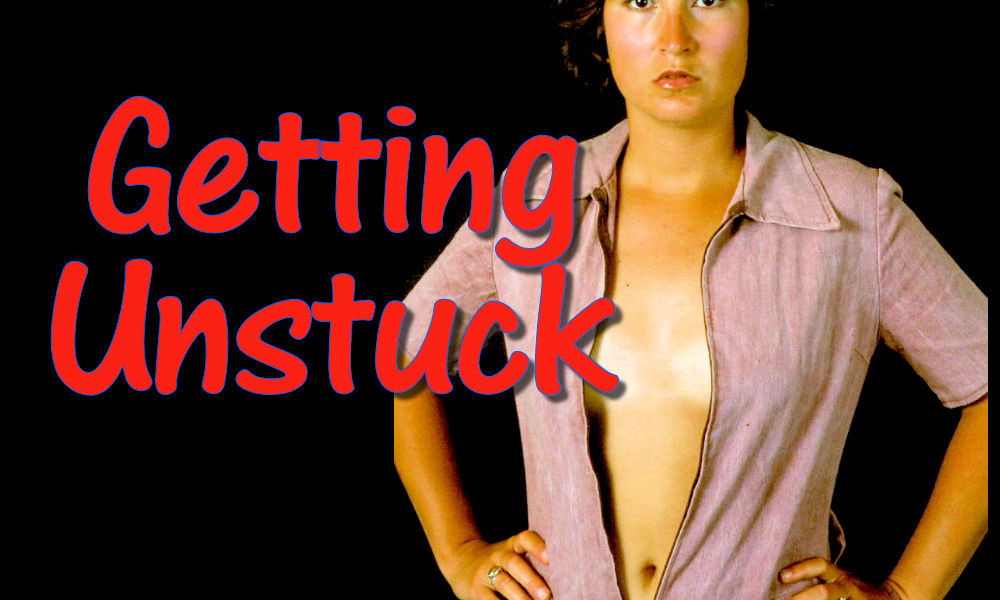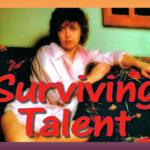Getting Unstuck — There are techniques to increase our ability to live from our skill set. Here are a few.
Want to learn more about this topic?

This Endless Moment
An excellent guide to life and living.
Learn to focus your attention of who you really are.
Purchase all formats from Amazon
Purchase digital versions
(Apple, Nook, Kobo, etc.) from this page
I do love it when you comment!
Here are two, following last week’s article on Surviving Talent:
Err, you seem to be assuming that everyone has a talent, perhaps some repressed artistic ability etc,. Personally I don‘t have any that others would value, though I like writing, painting etc. In your example the person has exceptional ability that you and others can see. My problem is how does that relate to us mediocre artists.
And:
I find it so amazing to be with my kids in school and seeing all the different children with their sprouting talents. It’s pretty easy to spot at an early age, 2nd grade and 4th grade. I so want to embrace my kids’ passions and talents, encourage them, let their little lights shine. I’m looking forward to hearing about how to recover my passions and talents, they have been so buried. I want to let my kids see and watch my own growth not just hear my words. It’s so much more powerful to be an example.
The first comment addresses an important issue. Let me unpack.
Yes, I do believe that everyone had talent—where I go off the rails is that I tend to use “art” illustrations to make my “talent” point. The issue with a word like “talent” is that it is mostly applied to artists and actors.
Much of my own skill set is in graphics arts like painting and photography, and, of course, I write. A lot. I was also a pretty good psychotherapist (given my gift for gab…)
Not what I mean, though. I’m not talking about artistry, but rather about Mastery.
A great Zen story: The abbot at a Zen Monastery died. The Monastery needed a new abbot, so another abbot was sent to pick one. He interviewed all of the monks, but was not satisfied.
He went to the kitchen for a bite to eat, and noticed the cook carving meat. With great skill. They struck up a conversation.
Abbot: Your knife-work is excellent.
Cook: Sharp knife, great care. I avoid the bones.
Abbot: How often do you sharpen your knife?
Cook: Once–24 years ago, –when I became the cook.
The cook was immediately installed as the abbot.
In Zen, we speak of “skillful means.” This is the application of talent to the task at hand. Therefore, one might be a skillful communicator, a skillful parent, or a skillful mathematician. My dad, for example, was all of these.
Secondly, note the clause, “…that others would value…” This was a huge issue for my clients. People get stuck on “others” because they are concerned with how “whatever it is they’re thinking of making, doing or being” will come across to others.
This outward-looking comes from our upbringing.
Good parents ask questions, less elegant parents provide judgements.

Asking a child, “What does your (project) mean?” is open-ended, and takes away any critique.
Saying,“You’ll never be an artist” begs the question, “According to whom?”
I suspect everyone either knows about, or can unearth (see below) their skill-set. The lucky few may have picked up on it as children and just carried on into an adult career. Others discovered something perking during University, or young adulthood.
I think immediately of a young man, who is deaf, that Dar taught. He loved carpentry. Dar found ways for him to build stuff at school, got him into a College carpentry program.He works for a furniture company, and in his spare time goes to 3rd world countries on building projects. This is talent, being applied.
The second comment
Notice how this teacher can spot the “not yet repressed” talents her students possess. Good teachers and parents can do a ton to encourage students/kids to follow their own lead, and keep passionate talent alive.
When I was in grade 11, we had a student teacher in our English class for a whole year. Kathy was a great teacher, quite funny, and adorable to look at, just what a 16-year-old wants.
But what I remember most was her focus on getting me to write. She didn’t let me get away with lazy writing, was honest with me, yet deeply encouraging. This is mentoring at its best.
Here’s a line from the above quote:
“I’m looking forward to hearing about how to recover my passions and talents, they have been so buried. I want to let my kids see and watch my own growth, not just hear my words. It’s so much more powerful to be an example.”
Notice the “…they have been so buried…” clause. In Wayne-speak, this would be: “I have, and continue to, bury my talent.”
I’m not nit-picking.
I would then suggest she say,
“I notice my tendency to stifle my talent, and here is what I will do right now, to change that.”
99% of therapy is helping clients to motivate themselves to do something. Or better, to stop stopping themselves, while starting a new behaviour. Many, most, are addicted to behaviour patterns that are getting them nowhere.
Here are Eight ways to get on with letting yourself be you.

1) Start with your senses

Passion is the word we use to describe the pleasant, hot, tingly, energetic feeling we get when we choose to turn ourselves on.
I was, for example, at a classical music concert, and a violin solo brought me to tears. I did not take from that that I should learn to play violin, but that I miss going to classical music concerts. I have a talent for immersing myself in music.
Dedicate time to exploring your senses.
- Touch: Go for a massage, and for bodywork. Roll around in sand. Dance. As you do, just be with the feeling. Make physical contact. Hug more.
- Sight: Go to a gallery. Go to a mall and look at people. Watch a visually stimulating movie. Stare into someone’s eyes, gently, for 5 minutes.
- Sound: Go to a concert or two. Learn and practice good communication. Tell a friend a story from your life that is meaningful,
- Smell: go to a greenhouse, a cheese factory, a farm, a Lush store. Pay attention to the stories the smells generate for you.
- Taste: Eat, drink, be merry—try new things, experiment with the familiar, and share the experience with a friend or two.
All of this is designed to get you firmly in your body, having a full-bodied experience. This is how passion is re-ignited.
2) Visualize

Imagine visiting an old, interesting house. As you open the front door, recognize the house as “your secret house.”
Go in, look around, see what’s there.
Perhaps each room represents a period in your life.
As you walk around, look for signs of what interested you as a child, a teen, etc. Make note, mentally, of what you discover.
3) Shadow dancing

Same house, but head for the Shadow room. (You’ll find it!) It’s pretty dark in there, eh?
Imagine dim light, and a place to sit or lie down. Imagine that the room is filled with things about yourself that you have forgotten, neglected, or been scared by.
Imagine that you are safe and secure, and can look at the contents, one at a time, sort of like being in a movie. Invite one thing to come forward, and ask it to explain itself.
4) Do something challenging

It might be having an honest conversation, performing at a talent time, singing in the shower, dressing differently, eating a food you’ve resisted, riding a zip line, sky diving, or spending time alone (without distractions.)
Meditate every day for a month. Walk every day, no iPod, just looking. Spend time with someone who does what you want to do, and pick their brain.
5) Take a course
Think of something you might be passionate about. Find a course at a community college, local teaching centre, library, wherever, enroll and see what happens.
One fiend wanted to learn furniture-making. She not only enrolled, she talked several friends into it too. Her house is rapidly filling with projects. Is she Duncan Fife? Does it matter?
6) Up your tolerance for yourself

We mostly stop ourselves (self-sensor) out of the fear, “What will everyone think (of me)?” Answer: whatever (if anything) they think.
Spending your life hiding accomplishes precisely nothing. And nothing can give you the courage to act. All you can do is act.
Critics will be critics. Many are intimidated by success, or even by people who just do stuff. They say, “You can’t do, think, be… that.”
What they really mean is they are making themselves uncomfortable, and rather than deal with their own issues, they demand that you stop doing what they are making themselves uncomfortable over.
You are who you are, and you likely are a lot more “interesting” than you let on, or let out. Time to let go of checking over your shoulder to see if an adult is watching, to become who you really are, and to make real what you’ve been hiding.
7) Show others

To use the above illustration, the teacher could pick a group of top students, and form an after school, “Make Magic” club. Each person would state a project they want to do (a talent they want to work on) and the rest of the group provides feedback and encouragement.
The teacher could lead with a project of her own.
And you don’t need to be a teacher to do this. Start your own “club” with people you trust, and have at it!






